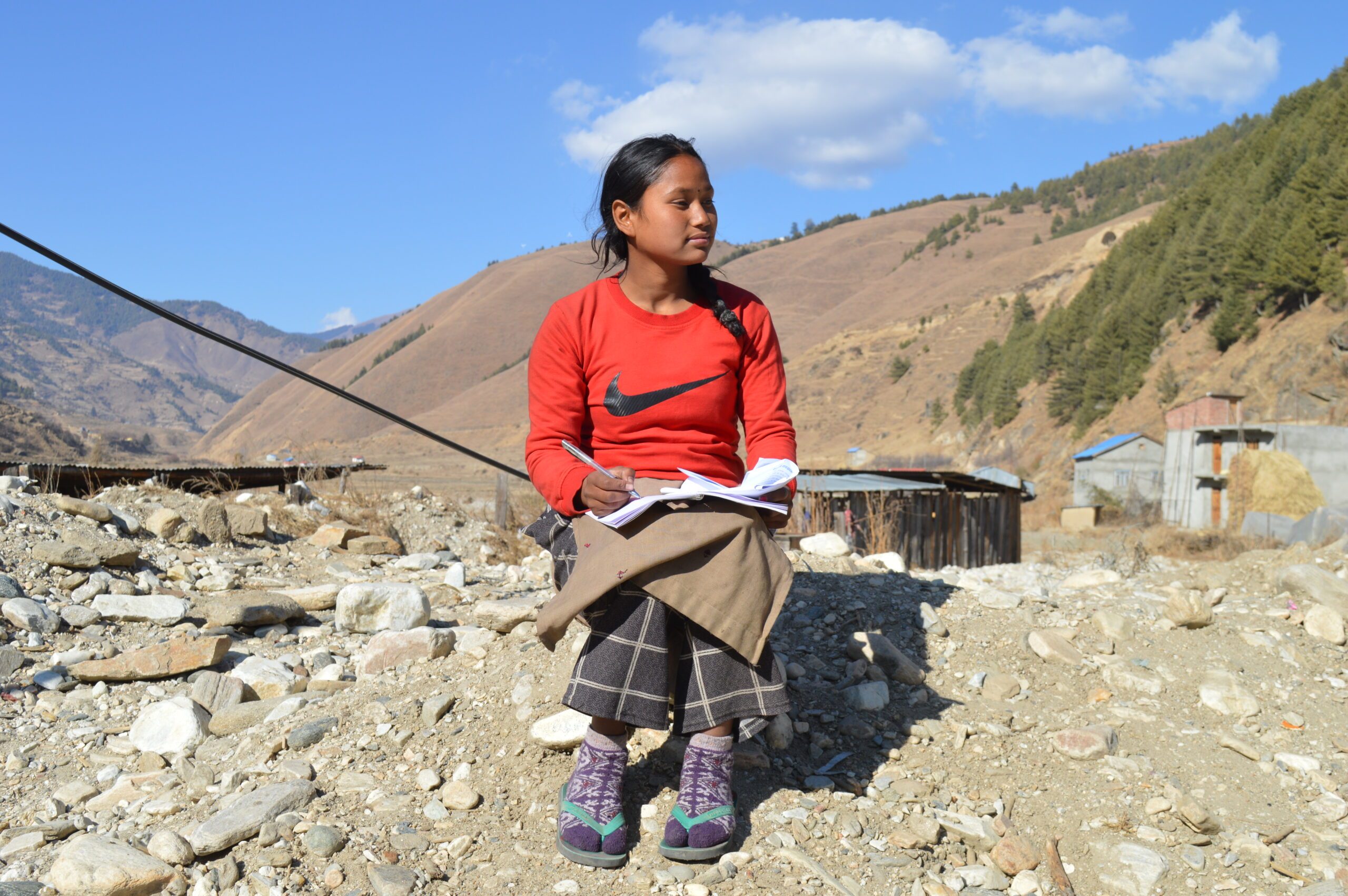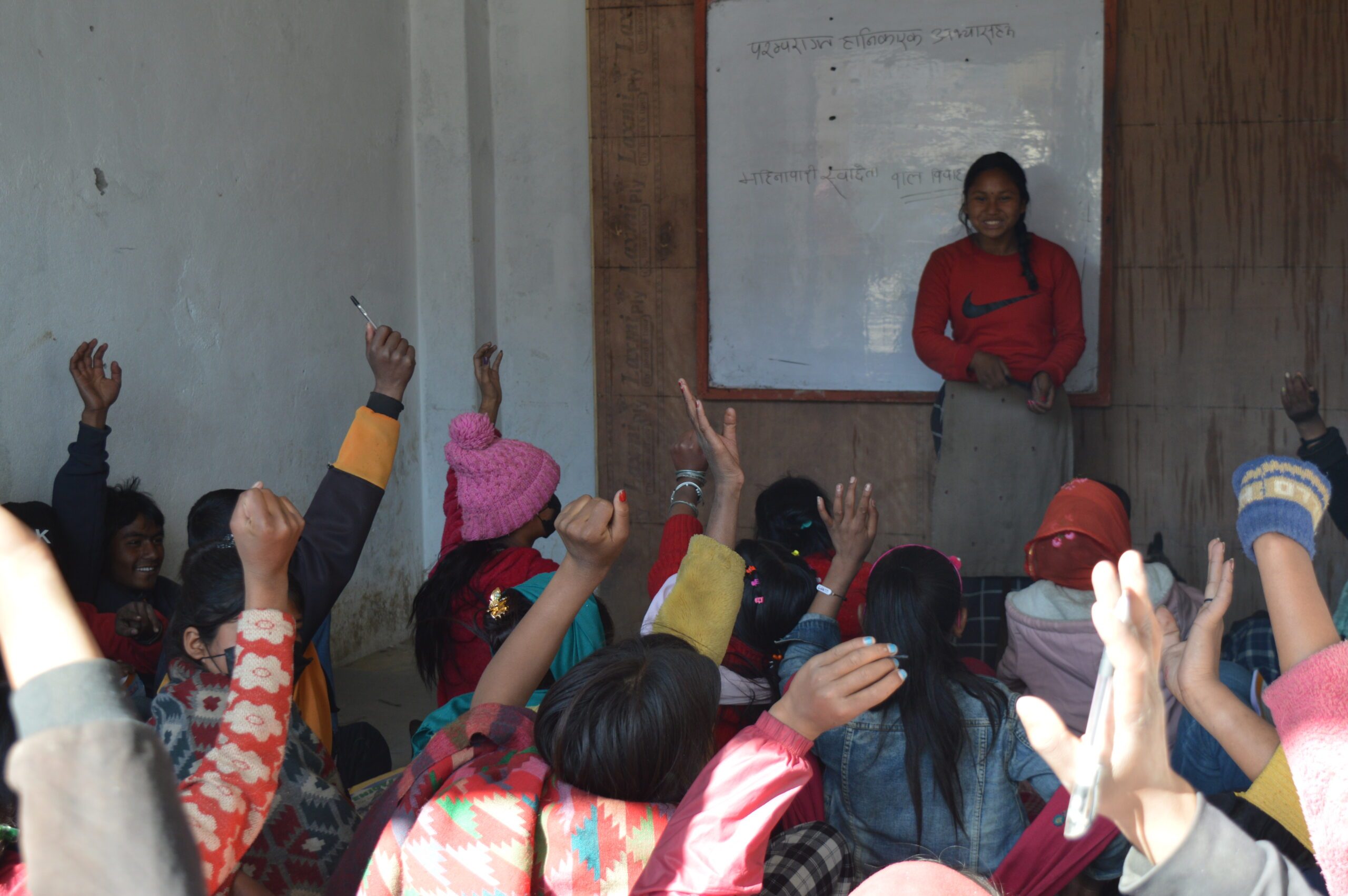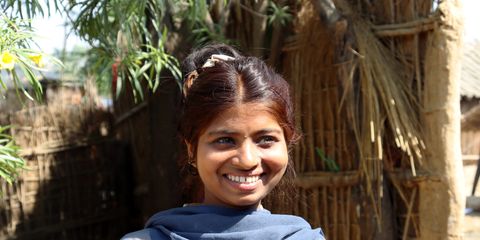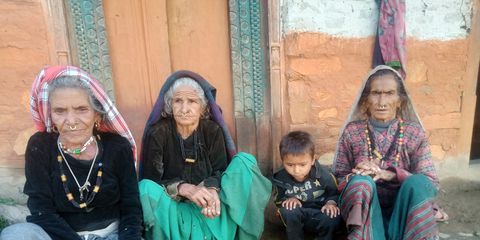Girls fight harmful traditional practices
The World Economic Forum estimates it will take 131 years to reach gender equality, that's why young women like Attima in Nepal are becoming champions of change, advocating for girls' rights and fighting against harmful traditional practices and child marriage. Together, we will beat the clock.

“I stayed in a chau goth for 3 years, but now I’ve stopped practicing the tradition and am campaigning for dignified menstruation,” explains 14-year-old Attima, a class 10 student from Jumla district in Nepal.
“I am campaigning for dignified menstruation.”
14-year-old Attima
When she first started her period, Attima was forced by her family to stay in a chau goth – a small hut where girls and women are sent when they are menstruating. Known as chhaupadi, this ancient and banned tradition is still practiced in some rural parts of Nepal.
“I joined the Champion of Change group 2 years ago. Every Friday, a group of girls come together in a safe space to discuss menstrual hygiene, prevent child marriage and gain the confidence to speak up for themselves.”
“I joined the Champion of Change group 2 years ago. Every Friday, a group of girls come together in a safe space to discuss menstrual hygiene, prevent child marriage and gain the confidence to speak up for themselves.”
Attima
It was at one of these meetings that Attima discovered that the practice of chhaupadi was illegal, unnecessary, and discriminated against girls and women. “I learned that we have the right to say no to such practices,” she shares.

Plan International’s Champions of Change programme promotes gender equality and positive social norms through youth engagement. Ending child marriage is an overarching objective of the programme. So when Attima heard that her friend Jawana was getting married at a very young age, she took the initiative to explain to her friend all about the negative consequences of child marriage, successfully convincing Jawana to call off her wedding.
“In the Champion of Change group, I learned that marriage under the age of 20 is a crime. It affects our education and health. Then I started attending discussions on preventing child marriage organised by the district administration. I talked to my parents and relatives and encouraged them to educate their children first, and let them marry later.”
Attima’s work to prevent child marriage
As part of Plan’s celebrations for the International Day of the Girl, Attima was selected to take over as head of her Ward for the day. “I proposed the implementation of a budget programme to address child marriage in the community, with a special focus on poor and marginalised children,” she shares.
Since then, Attima has been invited to the district office to take part in meetings to make this a reality. She also works tirelessly with civil society networks in her village to lobby the local government to allocate a budget for programmes to combat child marriage.
Attima aspires to become a lawyer and says Plan International has inspired her to pursue this dream. “After I become a lawyer, I want to work in the field of children’s rights,” she says. She is currently the president of her Champion of Change network, where she inspires and leads other young changemakers.
“I want to become a lawyer to work in the field of children’s rights.”
Attima
“People used to say that I was too shy to even talk to my friends, and even at home I was shy. But now my older brother assures me that I have a bright future. He has even promised to finance my education, even if it means selling his land,” says Attima.
“I have taught over 200 young people how to prevent child marriage and focus on their education, and I can now successfully mediate and resolve minor domestic disputes,” Attima says. “Now I am in charge of the adolescent girls’ programmes in my school. It makes me happy when my friends and teachers praise me and say I’ve done a great job.”
How we are supporting girls
Plan International’s Champion of Change network was formed as part of a project to reduce the prevalence of child, early and forced marriage in Bardiya, Kalikot and Jumla districts.
The project takes a comprehensive approach to empowering adolescent girls and boys to protect themselves and have a say in their future through education, economic empowerment, increased knowledge of sexual and reproductive health and rights, and life skills. The programme also supports families with daughters at high risk of child marriage to increase their income so they can avoid early marriage.
The project addresses the root causes of child, early and forced marriage by encouraging communities to adopt norms that value girls and support young people to delay marriage. It also advocates for and strengthens child protection laws and policies and their implementation.

